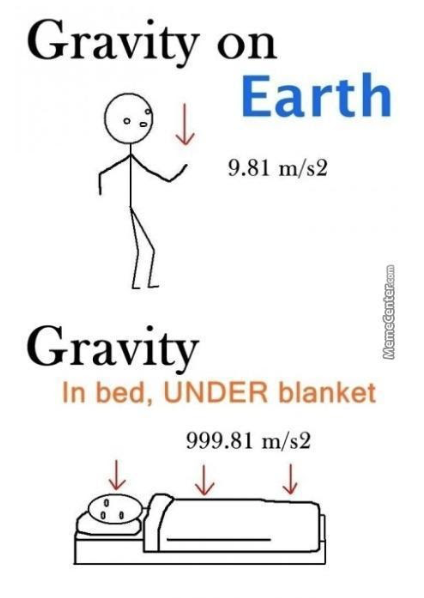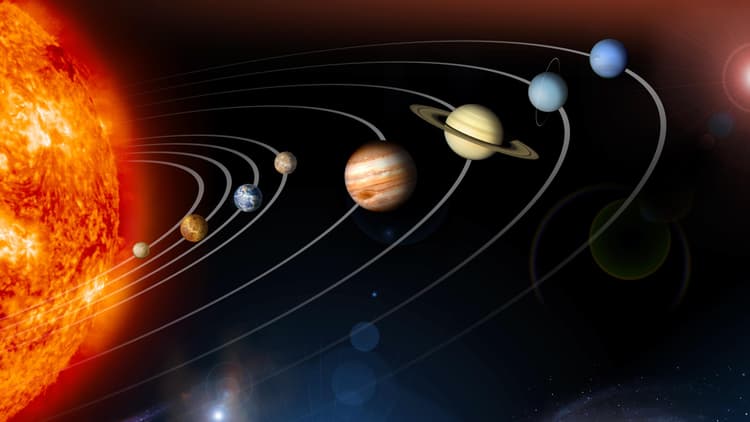Fundamental Forces
Chloe Davis
7 min read
Listen to this study note
Study Guide Overview
This study guide covers gravitational forces in preparation for the AP Physics 1 exam. Key topics include: Newton's Law of Universal Gravitation, calculating weight (), gravitational fields, the four fundamental forces (with emphasis on gravity and the strong force), and gravity's dominance on astronomical scales due to its infinite range. It also includes practice questions and exam tips covering direct and inverse relationships related to gravity.
#AP Physics 1: Gravitational Forces - Your Ultimate Study Guide
Hey there, future physics pro! Let's get you prepped and confident for the AP Physics 1 exam. This guide is designed to be your go-to resource, especially the night before the test. We'll break down everything you need to know about gravitational forces, making it easy to understand and remember. Let's dive in!
#1. Introduction to Gravitational Forces
#What is Gravity?
- Gravity is a fundamental force that attracts objects with mass towards each other. 🌍
- It's the force that keeps your feet on the ground and planets in orbit around stars.
The Force of Gravity (or Weight) is calculated as: where m is mass and g is the acceleration due to gravity (approximately 9.8 m/s² on Earth).

*Caption: The more massive an object, the greater the force of gravity.*
#Gravity's Role in the Universe
- On astronomical scales, gravity is the dominant force. This is because gravity has an infinite range and there is no negative mass to cancel it out.
#The Four Fundamental Forces
Here's a quick rundown of the four fundamental forces:
1. **Strong Force**: Holds atomic nuclei together. Short range.
2. **Electromagnetic Force**: Acts between charged particles.
3. **Electroweak Force**: Involved in particle decay.
4. **Gravity**: Attraction between objects with mass or energy.
-
For AP Physics 1, focus primarily on the strong force and gravity.
- The **strong force** is very short-ranged, meaning its influence diminishes rapidly with distance.
Practice Question
Multiple Choice Questions
-
Two objects of different masses are dropped from the same height in a vacuum. Which object will hit the ground first? (A) The heavier object (B) The lighter object (C) They will hit at the same time (D) It depends on the shape of the objects
-
The gravitational force between two objects is 10 N. If the distance between the objects is doubled, what is the new gravitational force? (A) 2.5 N (B) 5 N (C) 20 N (D) 40 N
Free Response Question
A satellite of mass m is orbiting a planet of mass M at a distance r. The gravitational force between them is F.
(a) Express the gravitational force F in terms of m, M, r, and the gravitational constant G.
(b) If the mass of the satellite is doubled, what happens to the gravitational force? Explain.
(c) If the distance between the satellite and the planet is doubled, what happens to the gravitational force? Explain.
Answer Key
Multiple Choice Questions
- (C) They will hit at the same time (in a vacuum, acceleration due to gravity is the same for all objects)
- (A) 2.5 N (Gravitational force is inversely proportional to the square of the distance)
Free Response Question
(a) (1 point for correct formula, 1 point for correct variables)
(b) The gravitational force doubles. (1 point) The gravitational force is directly proportional to the mass of the satellite (1 point)
(c) The gravitational force decreases to one-fourth of its original value. (1 point) The gravitational force is inversely proportional to the square of the distance (1 point)
#2. Gravitational Domination
#Why Gravity Rules at Large Scales
The strong and weak forces are short-ranged, effectively zero outside of atomic nuclei.
- Electromagnetic forces are often canceled out due to the presence of both positive and negative charges.
- Gravity, however, is always attractive and has an infinite range.
#Direct and Inverse Relationships
- Direct Relationship: The greater the mass of the objects, the stronger the gravitational force. ⬆️ mass = ⬆️ force
- Inverse Relationship: The greater the distance between the objects, the weaker the gravitational force. ⬆️ distance = ⬇️ force
#Gravity's Long Reach
Gravity is a long-range force. Its strength decreases with the square of the distance.
-
If you double the distance, the gravitational force becomes one-fourth as strong. If you triple the distance, it becomes one-ninth as strong.
- This is why gravity dominates at large distances, like between the Earth and the Sun.
- The strong force decreases exponentially with distance, making it negligible at large distances.

Caption: Gravity is the force that holds galaxies together over vast distances.
#Gravity and Massive Bodies
-
Gravity is the only force that can act over such massive bodies, like galaxies.
-
It keeps stars and planets in orbit around the center of mass of a galaxy.
Practice Question
Multiple Choice Questions
-
Which of the following statements best describes the relationship between gravitational force and distance? (A) Gravitational force increases linearly with distance. (B) Gravitational force decreases linearly with distance. (C) Gravitational force increases with the square of the distance. (D) Gravitational force decreases with the square of the distance.
-
Why does gravity dominate over the other fundamental forces at astronomical scales? (A) Gravity is the strongest of all fundamental forces. (B) Gravity has a very short range. (C) Gravity has an infinite range and there is no negative mass. (D) Gravity is the only force that acts on massive objects.
Free Response Question
Two planets, A and B, have masses M and 2M, respectively. They are separated by a distance d.
(a) Draw a free-body diagram for each planet, showing the gravitational forces acting on them.
(b) If the distance between the planets is halved, what happens to the gravitational force between them? Explain.
(c) If the mass of planet A is doubled, what happens to the gravitational force between them? Explain.
Answer Key
Multiple Choice Questions
- (D) Gravitational force decreases with the square of the distance.
- (C) Gravity has an infinite range and there is no negative mass.
Free Response Question
(a) Free-body diagrams: Each planet should have one force vector pointing towards the other planet, labeled F. (1 point for correct direction, 1 point for correct label)
(b) The gravitational force increases by a factor of 4. (1 point) The gravitational force is inversely proportional to the square of the distance. (1 point)
(c) The gravitational force doubles. (1 point) The gravitational force is directly proportional to the mass of planet A. (1 point)
#3. Final Exam Focus
#High-Priority Topics
- Newton's Law of Universal Gravitation: Understand how mass and distance affect gravitational force. 💡
- Weight vs. Mass: Know the difference and how to calculate weight using .
- Gravitational Fields: Be familiar with the concept of gravitational fields and how they relate to acceleration due to gravity.
#Common Question Types
- Multiple Choice: Expect questions testing your understanding of the relationships between mass, distance, and gravitational force.
- Free Response: Be prepared to apply the law of gravitation to solve problems involving planets, satellites, and other celestial bodies.
#Last-Minute Tips
Time Management: Don't spend too long on any single question. Move on and come back if you have time.
Common Pitfalls: Watch out for unit conversions and be careful with inverse square relationships.
- Strategies: Draw diagrams to visualize problems, especially free-body diagrams. Practice explaining your reasoning clearly and concisely.
#Memory Aids
Remember: Gravity is a long-range force that decreases with the square of the distance.
Think: More mass, more gravity; more distance, less gravity.
#You've Got This!
Remember, you've prepared for this. Stay calm, read each question carefully, and apply what you've learned. You're ready to rock this exam! 🎉
Continue your learning journey

How are we doing?
Give us your feedback and let us know how we can improve





